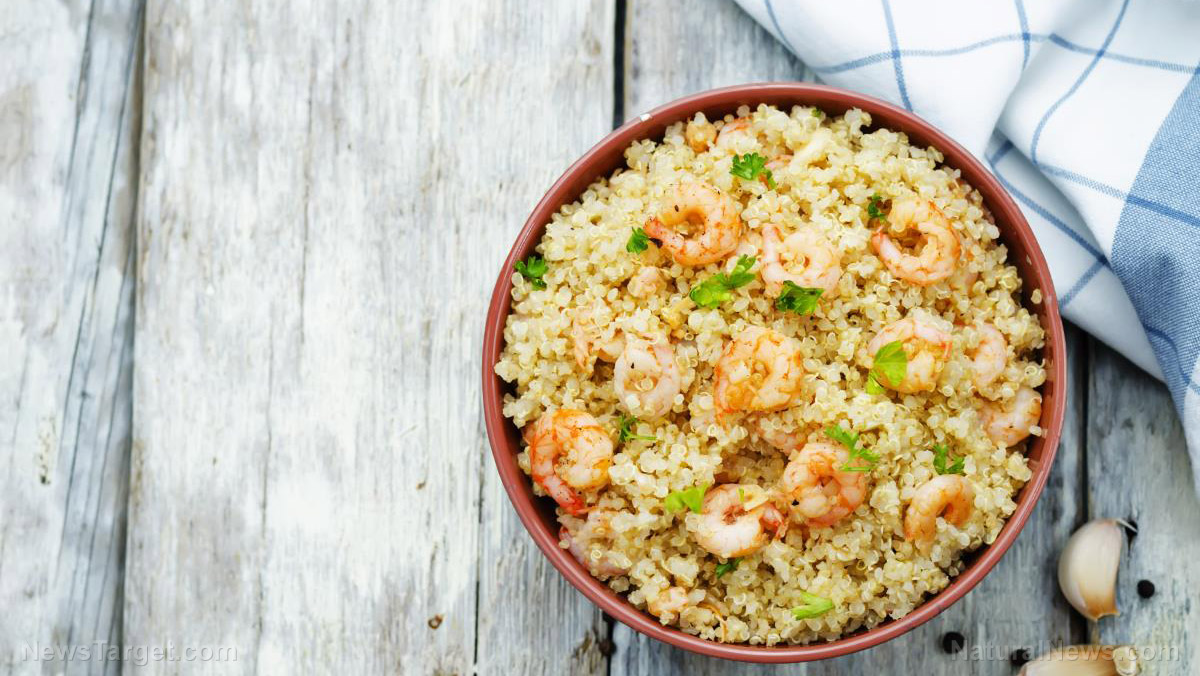Useful AND pretty: 5 Health benefits of parsley that prove it's more than just a garnish

(Natural News) Parsley is a mildly bitter herb that’s often used as a garnish for various dishes. But did you know that parsley is also full of nutrients with cancer-fighting properties and that it can boost your bone health?
Parsley is a flowering plant often used as a fresh culinary herb or dried spice. Usually used as a garnish, the bright green herb has a mild, bitter flavor that complements a lot of savory dishes.
Detailed below are five of the incredible benefits of this amazing herb.
Parsley is full of various nutrients
Half a cup (30 g) of fresh, chopped parsley contains:
- 11 calories
- 2 grams of carbs
- 1 g of fiber
- 1 g of protein
- Less than 1 g of fat
- 547 percent of the Reference Daily Intake (RDI) of vitamin K
- 108 percent of the RDI of vitamin A
- 53 percent of the RDI of vitamin C
- 11 percent of the RDI of folate
- 4 percent of the RDI of potassium
Parsley is chock-full of vitamin K that your body needs for blood clotting and bone health. It also offers vitamins A and C, both of which possess beneficial antioxidant properties.
Low-calorie parsley is flavorful, making it the perfect ingredient for healthy recipes if you’re watching what you eat.
Parsley is an antioxidant-rich herb
Parsley contains potent antioxidants with many health benefits.
Antioxidants are compounds that fight cellular damage from molecules known as free radicals. Your body requires a balance of antioxidants and free radicals for your overall well-being.
Parsley contains three antioxidants:
- Carotenoids – Parsley contains two powerful carotenoids: beta carotene and lutein. According to studies, a higher intake of carotenoids is linked to a lower risk of developing conditions like lung cancer. They are also crucial to eye health.
- Flavonoids – Parsley is rich in flavonoids, particularly apigenin and myricetin. Research suggests that a diet full of flavonoids can help reduce the risk of health problems such as colon cancer, heart disease, and Type 2 diabetes.
- Vitamin C – Vitamin C has powerful antioxidant effects. The vitamin is also essential for immunity and the prevention of chronic disease.
 | Discover how to prevent and reverse heart disease (and other cardio related events) with this free ebook: Written by popular Natural News writer Vicki Batt, this book includes everything you need to know about preventing heart disease, reversing hypertension, and nurturing your cardiac health without medication. Learn More. |
The surprising results of a study published in the International Journal of Molecular Sciences revealed that dried parsley contains 17 times more antioxidants than fresh sprigs.
Parsley has anti-cancer plant compounds
Oxidative stress is characterized by an imbalance in levels of antioxidants and free radicals. This condition is closely linked to the development of chronic diseases like cancer.
Parsley is a great source of flavonoid antioxidants and vitamin C that help minimize oxidative stress in your body. These compounds may also lower your risk of certain cancers.
Findings from one study showed that increasing vitamin C by 100 mg per day lowered the risk of overall cancer by seven percent.
Parsley boosts bone health
Parsley is full of vitamin K that’s essential for bone health. The vitamin improves bone health by supporting osteoblasts or your bone-building cells.
Vitamin K activates certain proteins that boost bone mineral density or the amount of bone minerals in bone tissue. (Related: Eat your medicine: 5 Herbs in your pantry that have amazing health benefits.)
Parsley is easy to incorporate into a balanced diet
Parsley is a versatile and inexpensive herb. Use dried parsley to enhance the flavor of soups, stews, and tomato-based sauces.
Alternatively, you can add fresh parsley to savory dishes. Use fresh sprigs in recipes that don’t require cooking. When cooking with parsley, add the herb once the dish is fully cooked.
Extend the life of fresh parsley by wrapping it in a damp paper towel and storing it in a closed container in your fridge.
Fresh parsley can be added to:
- Egg dishes (e.g., frittata, omelet, or quiche)
- Grain-based salads
- Homemade chimichurri sauce
- Homemade salad dressings
- Marinades
- Poultry-based dishes
- Seafood-based dishes
Parsley is a superfood that’s a great source of nutrients like vitamins A, C, and K. These vitamins and healthy plant compounds can boost your bone health and prevent different chronic diseases. To enjoy the health benefits of parsley, incorporate the herb into your diet on a regular basis with different dishes.
Sources include:


